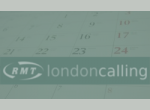Violence Against Women: issues in the local elections
The End Violence Against Women coalition is highlighting the following facts and issues in the forthcoming local elections:
- Domestic and sexual violence in numbers: In 2012 around 1.2 million women suffered domestic abuse, over 400,000 women were sexually assaulted, 70,000 women were raped, thousands were stalked (Home Office)
- Specialist support services are vital: Most women and girls do not report abuse to the police but they need to be able to find community support services, including refuges and helplines, when they look for them. But - local authorities cut funding to women’s services by a dramatic 31% in a single financial year to April 2012.
- Support services are popular: When asked in an EVAW Coalition poll (2013), around 70% of the public think their local council should fund Rape Crisis Centres and domestic violence refuges.
- Sexual harassment: 43% of young women in London (aged 18-34) experienced sexual harassment in public spaces in 1 year (YouGov).
- Child sexual abuse: One in six children aged 11-17 have experienced sexual abuse (NSPCC); a large proportion of Rape Crisis services users are survivors of child sexual abuse who seek support years later as adults
- FGM: Over 20,000 girls under 15 are at high risk of female genital mutilation in England and Wales each year (Forward). The risk is highest for primary school girls.
- Forced marriage: In 2013 there were 1302 instances where the Government’s Forced Marriage Unit gave advice or support related to a possible forced marriage, the majority involving girls and young women.
- Abuse at school: Almost a third of 16-18 year-old girls have experienced ‘groping’ or other unwanted sexual touching at school (EVAW). Sexting (the sending of sexually explicit photos, which boys frequently request from girls) is commonplace, and pornography is widely accessed by children, boys in particular, and negatively affects their attitudes towards sex and relationships (Children’s Commissioner)
- Women excluded from politics: Women are often excluded from decision-making on these critical issues - only 12% of local council leaders and 32% of councillors in the UK are women. (Centre for Women and Democracy)
- 3945 reads





